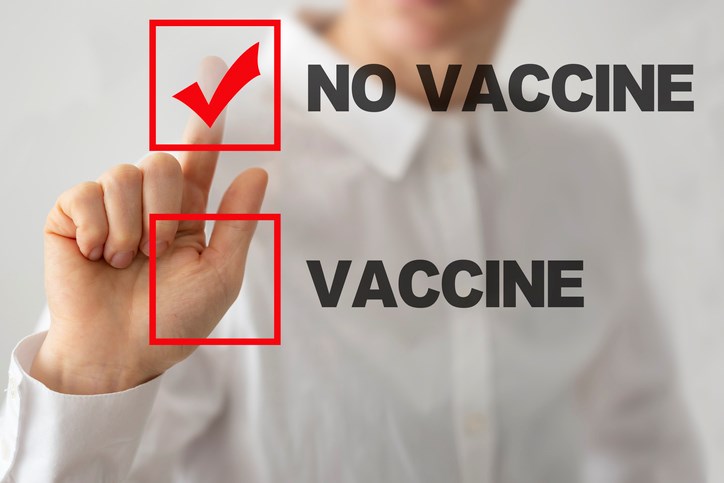Dear Editor
Recently when Saskatchewan Premier Scott Moe responded in a long phone call to Nadine Ness who heads Unified Grassroots, a movement which opposes mandatory vaccinations, he was immediately criticized by Opposition leader Ryan Meili. When Meili characterized Grassroots as, “this radical extremist group, a group that’s been promoting anti-vaccine messages,” he was engaged in the classic, disingenuous ploy of misrepresentation for political ends.
Unified Grassroots, with about 14,000 members, many of whom are vaccinated, is no more anti-vaccination than it is pro-Meili. What they do object to is forced vaccination on pain of losing their job and livelihood! Canadian Medical Law, as does the Supreme Court, holds that adults have the right of personal autonomy in matters relating to their own medical care, and that medical care is wrongful unless the patient has given consent to it. There isn’t much consent involved when a young nurse with a student loan to repay, a nurse who has worked heroically through almost two years of pandemic, is told that if she doesn’t get vaccinated she is out of work and could lose her licence to practice, and coincidentally she is not eligible for employment insurance.
There are many reasons why a thoughtful person might be hesitant about having a relatively novel drug injected into their body. It is after all only a couple of decades since the Canadian military quietly ended the requirement for its soldiers to take the experimental, anti-malarial drug Mefloquine, which is still widely believed to have been responsible for the Clayton Matchee tragedy. Canada’s military made this drug, which was approved by Health Canada, compulsory for selected members of its forces. Also under Health Canada’s watch was the tainted blood scandal of the 1980s and the thalidomide disaster of the 1960s. Perhaps some caution is warranted when dealing with a drug approved by Health Canada only a few months ago.
Last year Canadians were told that vaccines would resolve the COVID pandemic; vaccines would provide immunity and when we had achieved 70 per cent coverage herd immunity would kick in. When the first vaccines became available we were told even one dose would provide almost as much protection as two; then 70 per cent coverage was attained, and we were told 80 per cent was required. We now have 87 per cent of those age 12 and up fully vaccinated and there seems no end in sight. Vaccine efficacy is waning and we are being prepped for a third ‘booster’ dose, and perhaps annual shots thereafter. Add to that the fact that in August, of 22 Saskatchewanians who died of COVID, 10 were fully vaccinated. Small wonder there is growing skepticism!
Now I am fully aware that at the outset virtually no one knew what to expect and the authorities and health experts were coping as best they could, but by now it is becoming increasingly apparent that politics is driving the response as much as is science. Perhaps more so.
The literature dated Aug. 5, 2021 which I received from University of Saskatchewan, Vaccine and Infectious Disease Organization (VIDO), states that, “The most common symptoms of COVID-19 are fever, tiredness, and dry cough. Some patients may have aches and pains, nasal congestion, sore throat, or diarrhea. These symptoms are usually mild, and most people recover from the disease without needing special treatment.” This, coupled with the fact that in the nearly two years of pandemic we have now recorded 30,000 Covid deaths in Canada (0.08 per cemt of Canadian population) while the Canadian Cancer Society estimates there will be 84,600 cancer deaths in 2021 alone, gives a perspective that is in stark contrast to what we hear daily from the media.
My purpose here is not to dissuade people from getting vaccinated; my plea to the general public and the political authorities is that we heed Premier Moe when he asked that we not stigmatize those have well-founded concerns about what is still clearly a mostly well-intensioned, world-wide experiment.
It is particularly reprehensible that we fire badly needed health care workers who only months ago were considered indispensable – indeed were widely hailed as heroes. We should be directing the same well deserved outrage at those who fire the young nurse mentioned earlier as we do in response to the firing of Fatimeh Anvari, the young Quebec woman who lost her teaching job for wearing the hijab.
James Wiebe
Sonningdale




